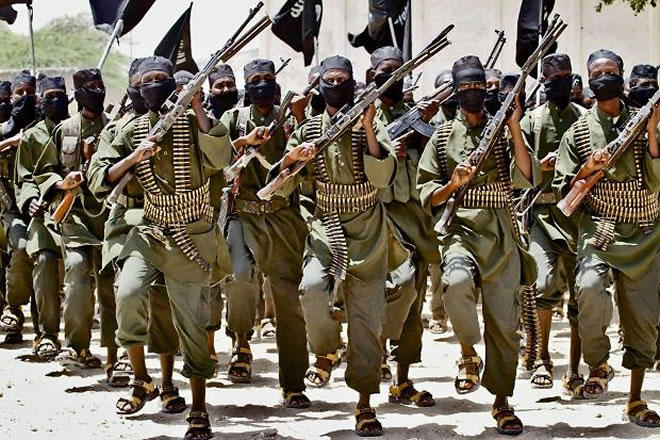

Jerome Starkey, Mogadishu
Saturday, October 12, 2013
Abdi Farah Shirdon, the Prime Minister, said his Government was determined to “pacify and control the port”, which is currently run by al-Shabaab, the Somali militant group that claimed responsibility for the siege last month at a Nairobi shopping mall.
Mr Shirdon claimed that al-Shabaab were on “their last legs” and could no longer fight “in a conventional sense”.
However, in a candid admission of his Government’s blind spots, he said he had “no idea” where Abdulkadir Mohamed Abdulkadir, the target of Saturday’s raid, was hiding after the Navy Seals were forced to retreat without knowing if they had killed him.
 Somali Prime Minister, Abdi F. Shirdon |
Mr Shirdon’s comments are designed to show that his Government has the will, but not the means, to destroy al-Shabaab. The assertion that the Islamist group can no longer fight conventionally will give little comfort to American generals who have spent the past decade fighting off attacks from al-Qaeda and its affiliates around the world.
The Somali Government controls Mogadishu and the country’s second city, Kismayo, after African Union and Kenyan troops helped to flush out al-Shabaab. The cities were recaptured in major military offensives. However, the militants still hold sway in the smaller towns and countryside, including a strip of coastline almost 250 miles long.
“Baraawe is vital for Shabaab because it has got a port,” Mr Shirdon said. “Many of their logistics operations happen there. The Government has a plan to pacify and control the port, but precisely when and how is better left to the generals.”
US officials said the terrorists who stormed the Westgate mall in Nairobi had planned their operation in Somalia, although most of the attackers were Kenyan citizens.
Members of Seal Team Six — the unit that killed Osama bin Laden — approached Baraawe in speedboats in darkness, but were beaten back during an hour-long firefight after they were spotted by an al-Shabaab sentry.
A Somali official said that al-Shabaab were known to “guard themselves”.
“You need to deliberately overpower them,” the official said. “You can’t sneak in and out.”
A leaked Kenyan intelligence report claimed that Abdulkadir, who the Seals had hoped to arrest, was a Kenyan of Somali origin linked to a series of foiled terrorist plots, which included bombing the Kenyan parliament and the United Nations in Nairobi. He is also known as Ikrima.
The report claimed that he co-ordinated a 2011 plot in which the wanted British fugitive Samantha Lewthwaite played a key part. The 29-year-old widow of Germaine Lindsay, one of the suicide bombers who killed 52 people in London on July 7, 2005, is alleged to be linked to al-Shabaab.
The report also named Jermaine Grant as a co-conspirator. He is currently on trial in Mombasa for terrorism-related offences.
Mr Shirdon said he had never seen any intelligence that Ms Lewthwaite was in Somalia.
Despite al-Shabaab’s success in repelling the Seals, and despite the September 21 attack in Kenya, Mr Shirdon said the Somali-based militants were on “their last legs”. He said they numbered no more than 4,000 people and could no longer fight, “in a conventional sense”.
However, he said Somalia’s army was also at full stretch, and that they would struggle to capture any more territory unless the international community paid for more helicopters and logistical support.
“We have communicated with the donors the importance of rebuilding the Somali National Forces; we hope they respond,” he said. “If the plan to capture Baraawe is completed we will eliminate the threat, not just to Somalia, but also regionally and internationally.”
In angry remarks after the Westgate attack, Uhuru Kenyatta, Kenya’s President, told Somalis to, “put their house in order”. Mr Shirdon said: “Our house is partially in order. The Westgate attack has once again underlined how Kenya’s and Somalia’s security are interlinked: al-Shabaab are a common threat.”